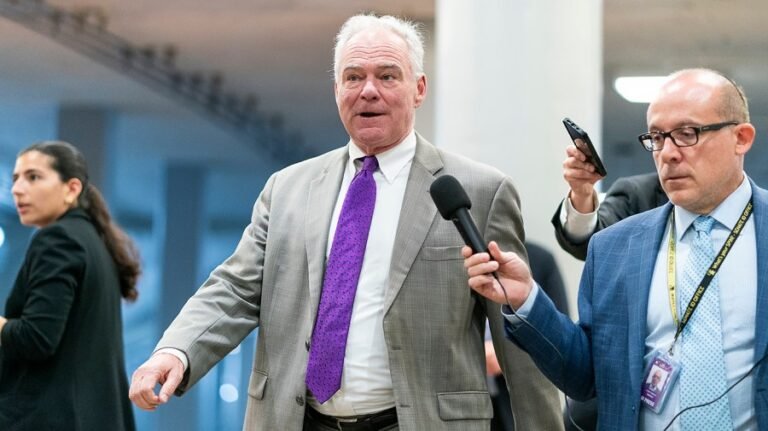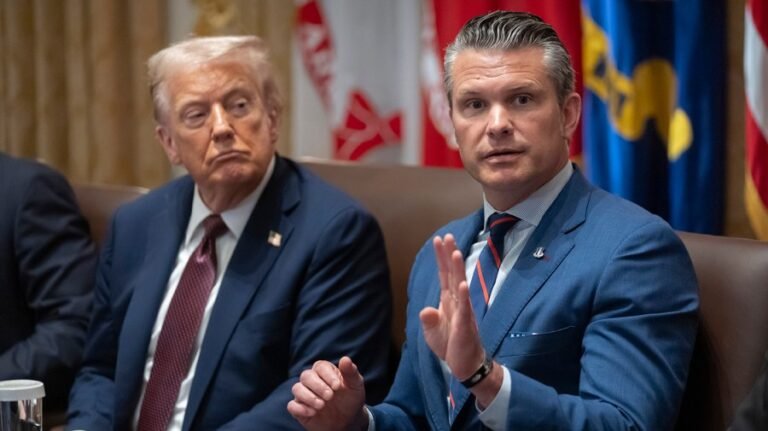
Moderate Democrats like Former Rep. Abigail Spanberger in Virginia and Rep. Mikie Sherrill in New Jersey are running for governor on a message that resonates: tackle affordability, fix health care and expand opportunity. If they win, they will be hailed as the future of the Democratic Party.
But there is a trap. There are few policy prescriptions that are bold enough to matter but moderate enough to win.
As it turns out, the American government already creates transformative communities of abundance without the stigma of “socialism.” As it happens, these are communities Spanberger and Sherrill already know well. I speak, of course, of the military.
Every year the military takes a true cross section of America and equips it for upward mobility, training its members to become nurses and engineers, electricians and pilots — secure careers that can serve their country in peace as well as war.
And in exchange for their service and sacrifice, America signs a social contract to take care of these troops. While Congress debates why Americans spend twice as much on health care as western nations for the privilege of dying three years sooner, every military base is an oasis of universal single-payer coverage.
As a young military officer, I saw how military families could focus on service because their government provided them affordable housing, accessible childcare, and confidence in knowing their children had universal pre-K and high-performing high schools.
At work, I earned a fair, middle-class wage in a workplace that was both meritocratic and meaningfully diverse. And when I finished my service, the government invested in me again: covering graduate school via the G.I. Bill without the mountain of debt that traps so many others.
If we give soldiers a chance to serve their country so that they could become worthy of these benefits, why not citizens?
Military service is noble, but it isn’t the only way to serve — and it isn’t the only service our country needs. American lives are at risk every time a car drives over one of the 221,800 bridges that need repair and the 76,175 that must be completely replaced. We need engineers to fix them. Our economy is limited by the 30 million Americans who lack internet access. We need linemen to install fiber. At a time when the White House says it is focused on crime, thousands of police officer billets go unfilled in New York, Chicago and Minneapolis. We need cops. Over 120 million Americans live in a health care-desert county. We need more nurses, doctors and pharmacists. Moderates who get elected should create a Service Corps to mint them.
If we rewarded Service Corps Veterans with some of the same benefits we already grant to an Army private — affordable housing, debt-free education, access to quality health care — we could tackle our biggest challenges while rebuilding a ladder into the middle class.
Almost 90 percent of Americans already favor voluntary national service. In my role as Advisory Council Chair for Harvard’s Center for Public Leadership, I see how eager young people are to serve. But too often, economic fears push them into jobs in finance or consulting instead. If serving their country guaranteed them the same social safety net we grant soldiers, I have no doubt that the best and brightest would flock to the front lines of our biggest civilian challenges. That is one of our big bets in creating the American Service Fellowship, which covers full tuition plus a living stipend for over 50 public servants and veterans of the military, Peace Corps and AmeriCorps to earn a degree at Harvard Kennedy School.
If Spanberger and Sherrill win their races, and assume their respective governorships, they would be uniquely positioned to launch state-level Service Corps, both because they have the need for service, and also because they have the means to reward it: first time homebuyer assistance, lifetime priority for state-subsidized childcare, matched savings accounts, and even hiring preferences for state employment. In time, states could build reciprocity, quilting together a national program, and making service a prestigious, even expected, rite of passage.
Such an ethos helps America build a common destiny. The military has always been a mixing pot of faith, class, race and region. When Americans of all walks serve side by side, they discover common ground. Dreamers learn the needs of their country and set their talents to the task. Cynics learn to love their country, warts and all. Red-staters and blue-staters learn to see our country as one common project. And politicians, knowing every family has “skin in the game,” will lead as if the whole nation were their responsibility.
This idea shouldn’t scare moderates. It is not socialism — it’s service. It is rooted in fairness, reciprocity, and patriotism, values most Americans already embrace. Ronald Reagan, George H.W. Bush and Bill Clinton all championed versions of national service. Expanding that vision now is both practical and popular.
If opportunity is the lock, service is the key. It’s time for a G.I. Bill for All.
Nate Bruschi is managing partner at Anchorwork Inc. and chair of the Harvard Center for Public Leadership Advisory Council.






